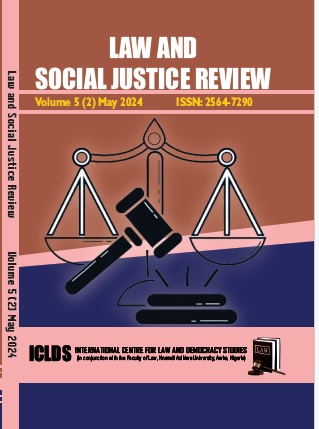EXAMINING THE LEGAL FRAMEWORK FOR TRANSITIONAL JUSTICE IN ADDRESSING THE BOKO HARAM INSURGENCY IN NIGERIA
Abstract
The Boko Haram insurgency in Nigeria has caused considerable humanitarian crises, human rights abuses, and socio-economic devastation. Current military and legal responses have demonstrated inadequacy in tackling its underlying causes. This work assesses Nigeria's legal framework for transitional justice, suggesting its possible use to address the consequences of the insurgency. It addresses deficiencies in the existing legal framework, especially with reparations, accountability, and victim-centered methodologies. The work analyses transitional justice methods, including truth commissions, amnesty, reparations, and community reconciliation. The article promotes the reform of Nigeria's legal and institutional frameworks to integrate these systems, ensuring a holistic approach to justice and reconciliation. Integrating these mechanisms into Nigeria's current legal frameworks can promote enduring peace, rectify the grievances of victims, and restore confidence in state institutions. It advocates for the formation of a National Commission on Transitional Justice, the construction of specialised courts, and the implementation of victim protection programs to promote healing and prevent future conflict.

